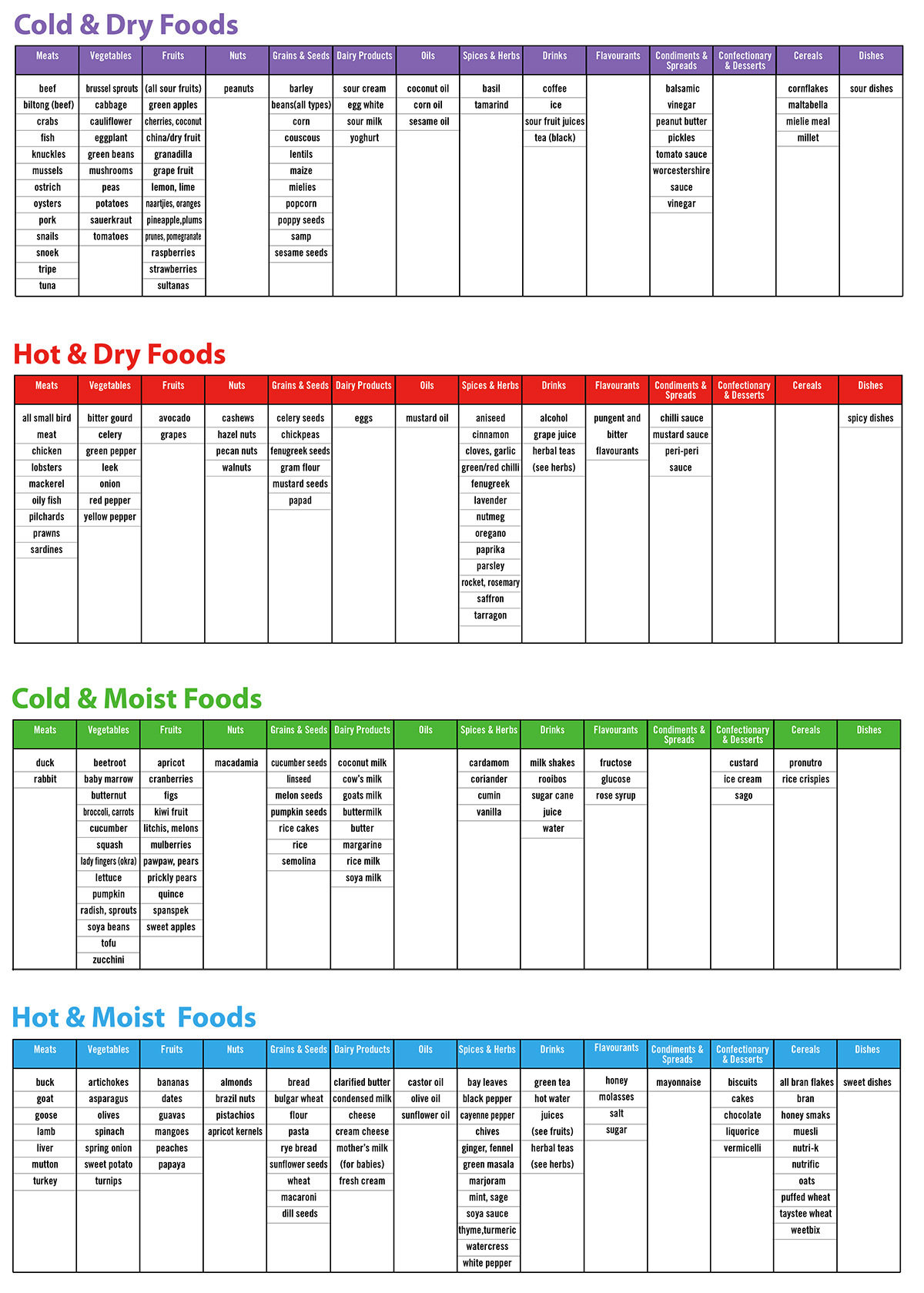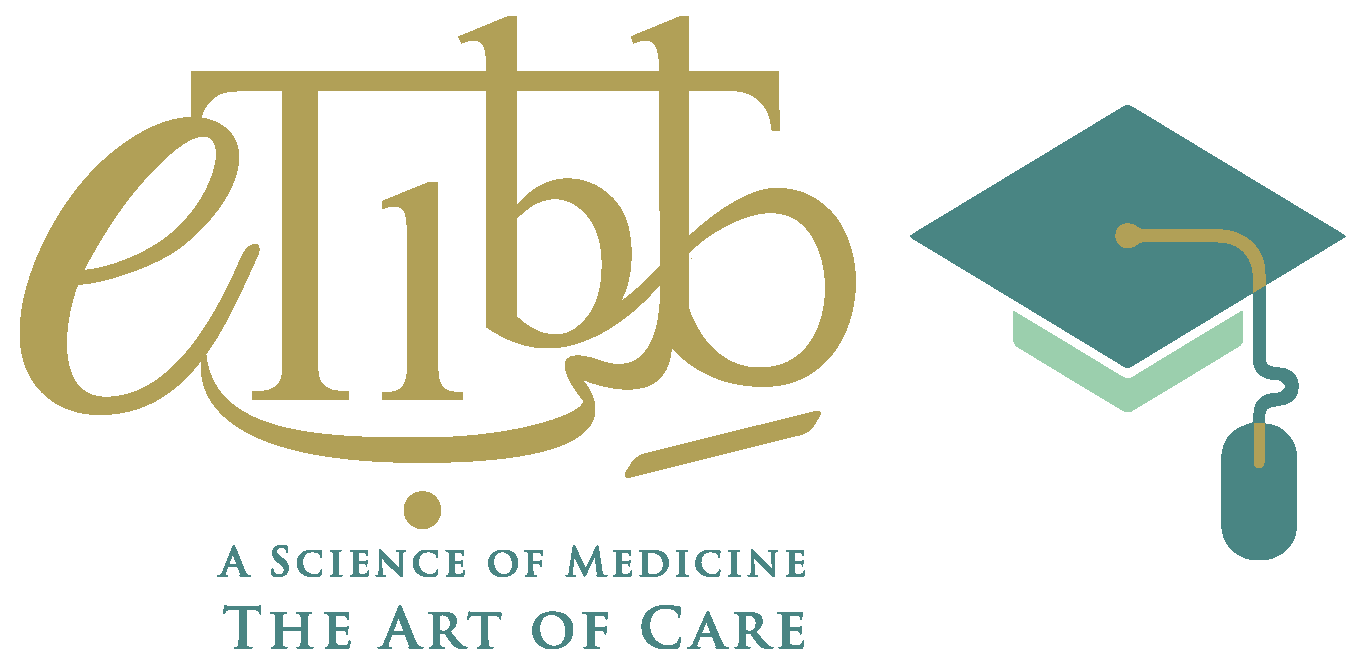

Classification of foods: Tibb and Western Medicine
The Tibb concept of qualities of foods can also be applied to the food groups that we are familiar with – proteins, fats, carbohydrates, and minerals – as indicated below:
- Protein: overall quality of dryness, but with degrees of heat or coldness, and the least amount of moistness.
- Fats: overall quality of heat, but with degrees of moistness, and the least amount of dryness and coldness.
- Carbohydrates: overall quality of moistness, but with degrees of heat and coldness, and the least amount of dryness.
- Water: overall quality of cold and moistness.
- Minerals: overall quality of cold and dryness.
Importance of heating foods
It is generally thought that the Mediterranean diet is a healthy diet. This is because it includes foods such as olive oil, garlic, and fresh ingredients with a dominant heating quality. The typical western diet of salads, proteins and dry foods fall in the Cold & Moist and Cold & dry categories. According to Tibb, many chronic illness conditions are caused by the accumulation of toxins resulting from poor digestion and metabolism due to the excess consumption of ‘cold’ foods. Including heating foods in your diet would, therefore, benefit you by:
- Increasing the production of digestive enzymes in the gastro-intestinal tract.
- Increasing the efficiency of functioning at the cellular and metabolic levels.
- Facilitating the assimilation of micronutrients, with a minimum of metabolic waste.
- Achieving and maintaining complete metabolic digestion.
Importance of water
Another important thing to remember when it comes to eating healthy is getting enough water. To maintain the 70% water of the human body, it is essential to drink enough water every day. Water plays a vital role in metabolism, digestion, the circulatory system, and in the elimination of waste products.
The human body can effectively deal with excess water, but not with inadequate amounts. Certain conditions or illnesses such as kidney stones, dry skin and dehydration all result from inadequate water intake. Sufficient water helps reduce blood pressure, high levels of cholesterol and uric acid and glucose.
Other Dietary Advice
- Avoid drinking water, cold drinks, or juices during meals. If you have to, drink very little. Preferably drink liquids half an hour before meals or one hour after meals.
- Avoid refined foods, eat foods as close to their natural state as possible.
- Eat fruit and salad for one meal a day – preferably for lunch.
- Eat simply. Avoid a lot of different types of food in the same meal.
- Eat in a settled and quiet atmosphere.
- Do not eat when upset.
- Make it a rule to sit down to eat
- Avoid excessive milk during your main meal.
